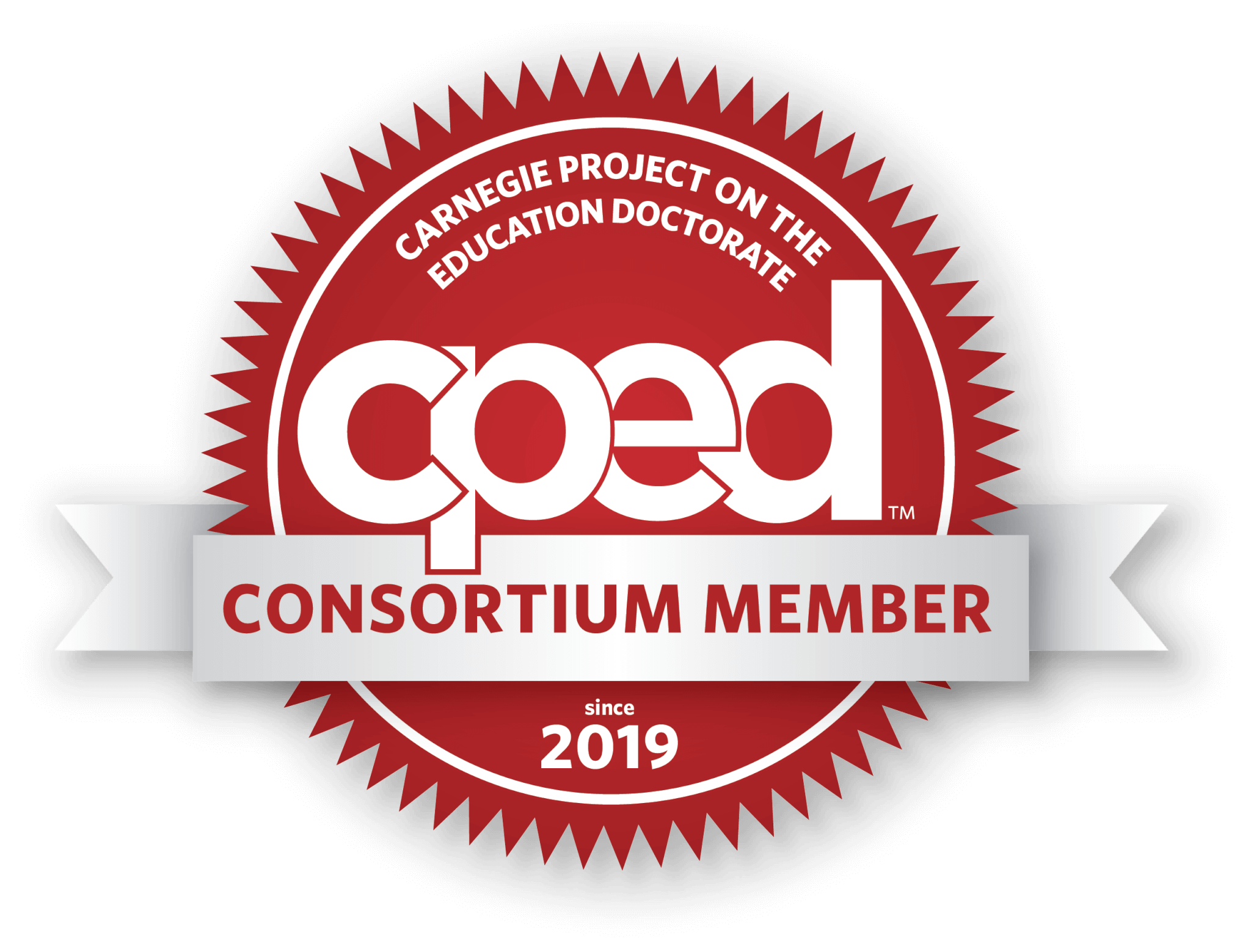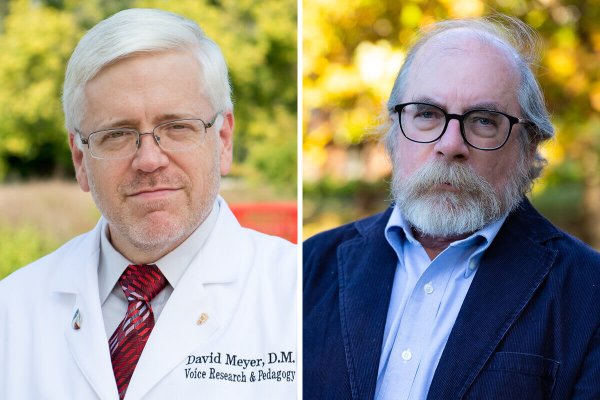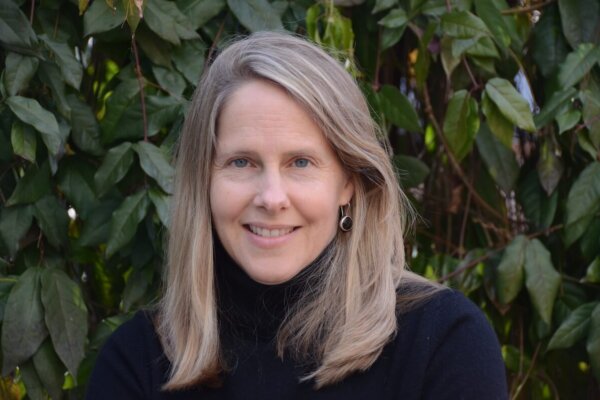Lead Your Educational Organization in the 21st Century!
Shenandoah’s Ed.D. in Educational Leadership offers innovative, inquiry-based preparation to meet the current realities and future needs of leaders in PreK-12 schools, higher education, and related institutions. Ed.D. learners work closely with faculty and peers to think deeply and examine critically the opportunities and challenges facing educational organizations. Learners integrate their practical knowledge with theory and research to analyze and positively impact complex problems of practice encountered in their organizations. Our graduates are scholarly practitioners committed to equitable, ethical, and reflective practice.
The faculty’s dedication towards educational leadership and the doctoral program at Shenandoah University is the best. I appreciate how the doctoral program faculty challenged my thinking, built my capacity as a writer and researcher, and did it all with the Shenandoah University spirit. I always felt like I was part of a special family at Shenandoah. I thank the leadership faculty from the bottom of my heart for their dedication and commitment to building the next generation of educational leaders.– Manuel de Jésus Gómez Portillo ’21, Ed.D.
Learn More About This Program
We prepare scholarly practitioners within a collaborative, learner-centered, inquiry-driven environment that values diverse cultures, experiences, and perspectives. This program is designed to be completed in three years.
Cohort Learning. The cohort is a defining feature of our program. Cohorts comprise mid- and senior-career professionals enrolled in the Ed.D. and Ph.D. in Educational Leadership programs. Cohort members move through a sequence of required program core and research courses together. This provides ongoing opportunities to learn from and with colleagues who bring diverse professional experiences and perspectives. The cohort provides a source of support for learners juggling work, school, family, and other obligations. Through the cohort, learners also grow their network of leader colleagues across schools, school systems, higher education institutions, and other education organizations.
Low Residency Model. Ed.D. learners are typically full-time working professionals. Our low-residency model preserves the benefits of in-person learning while capitalizing on the flexibility of virtual learning. Learners meet in person on three Saturdays at our Winchester and/or Loudoun locations each semester or term. This is complemented by weekly Zoom classes held in the evenings.
Global Learning. Educational leaders are preparing students for work and life in a global society. Shenandoah offers multiple international study opportunities for Ed.D. learners on campus and abroad. Regularly we offer an elective global experiential learning course that includes short study abroad trips to study educational organizations. In recent years, learners have visited and studied school and university education systems in Finland, Ireland, and Australia. In spring 2024, we go to Scotland. In addition, we regularly embed Collaborative Online International Learning (COIL), a form of virtual exchange, into our courses. In a COIL, Ed.D. learners meet and collaborate virtually with learners at universities around the world.
Scholarly Practice. Learners examine problems of practice encountered in their educational organizations. Learners critically and intensively study these problems from interdisciplinary and diverse perspectives with the goal of deeper insight and capacity to positively impact outcomes in their organization.
Carnegie Project on the Education Doctorate (CPED) Member. This organization of over 135 colleges and schools of education is dedicated to high quality and relevant doctoral preparation for educators in the U.S. and Canada. Shenandoah faculty and Ed.D. learners have access to this professional network that offers resources and opportunities to participate in national dialogues about doctoral preparation and the education profession.
Career Possibilities
Our graduates continue in their current role with enhanced skills and knowledge, advance within their organization, or secure new positions.
Ed.D. alumni serve in a variety of leadership roles in educational organizations. A sampling include school principals, assistant principals, and deans; school division superintendents and other district administrators; higher education faculty; and higher education administrators in student life, student support services, and other non-academic departments.
Classes
Learners will:
- Interpret, evaluate, and apply professional knowledge, practice, and research for leading continuous improvement in educational organizations
- Critically examine and apply ethical and equity-minded principles and practices
- Strategically apply knowledge and skills that recognize the local, national, and global contexts of leadership
- Cultivate lifelong learning for self and others
- Build networks and partnerships to support continuous improvement for education
|
Course |
Title |
Credits |
|
Program Core (15 credits) |
|
|
|
LST 626 |
Change in Public Sector and Nonprofit Organizations |
3 |
|
LST 710 |
Leadership Theory and Applications |
3 |
|
LST 720 |
Societal Factors: Influences on Policy, Programs, and Practice |
3 |
|
LST 735 |
Organizational Theory and Behavior |
3 |
|
LST 740 |
Governance and Public Policy |
3 |
|
Research Core (10 credits) |
|
|
|
RST 765 |
Foundations of Doctoral Research |
3 |
|
RST 766 |
Writing in the Literature |
1 |
|
RST 775 |
Quantitative Research Design and Data Analysis |
3 |
|
RST 784 |
Qualitative Methods for Doctoral Research |
3 |
|
Applied Research (4 credits) |
|
|
|
RST 790 |
Quantitative and Qualitative Proposal |
2 |
|
RST 791 |
Quantitative and Qualitative Pilot |
2 |
|
Scholarly Practitioner (3 credits; choose one) |
3 |
|
|
RST 670 |
Improvement Science in Organizations |
|
|
RST 676 |
Survey Design and Analysis |
|
|
Global Experiential Learning (3 credits; choose one) |
3 |
|
|
LST 675 |
Experiential Learning in Organizational Leadership |
|
|
EDU 646 |
International Education |
|
|
Concentration (Choose one) |
6-15 |
|
|
|
Leadership in Education, Individualized (6 credits) |
|
|
|
Initial Administrative Licensure (15 credits) |
|
|
Dissertation |
9 (minimum) |
|
|
RST 799 |
Dissertation (offered in 1, 2, 3 credit sections) |
|
|
Total |
|
50-59 |
Concentrations
Learners complete one of these concentrations:
Leadership in Education. This 6-credit individualized concentration allows learners to study in a subfield of educational leadership that is aligned with the learners’ professional goals. In consultation with an advisor, learners select graduate-level electives from a wide menu of offerings from the Division of Education and Leadership as well as other academic departments across the university.
Initial Administrative Licensure.This 15-credit concentration in conjunction with the required EdD program core and research courses provides the coursework of a Virginia-approved program for licensure in PreK-12 Administration and Supervision. (Note: To qualify for a permanent five-year endorsement through the Virginia Department of Education, graduates must also successfully complete a beginning administration and supervision assessment as prescribed by the Virginia Board of Education, have three years teaching experience, and hold a valid teaching license.)
| ADM 623 | School Law | 3 |
| ADM 624 | School Finance Theory and Practice | 3 |
| ADM 640 | Curriculum Development and Evaluation | 3 |
| ADM 641 | Supervision and Evaluation of Instruction | 3 |
| ADM 626 | Practicum in Educational Leadership | 3 |
| Total | 15 |
The Dissertation
The dissertation is the program capstone in which learners develop, conduct, and report results of an independent research study. The dissertation is an applied, disciplined inquiry into a problem encountered in the learner’s professional practice, typically in an educational organization. Through the dissertation, learners delve deeply into a specific area of interest, develop expertise in that area, and contribute new knowledge for their organization and the field of educational leadership.
Faculty
As a learner-centered program, we prioritize teaching, advising, and mentoring. We offer low faculty-learner ratios. Our experienced doctoral faculty works closely and collaboratively with learners to create an environment that is both challenging and supportive throughout the coursework and dissertation phases of the program.



